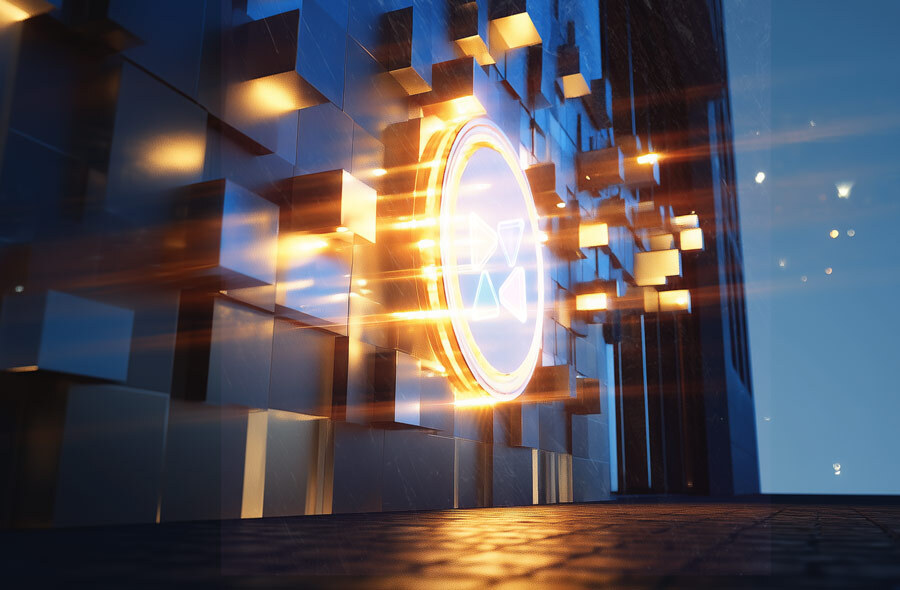Origin
The roots of RWA tokenization can be traced back to the emergence of Bitcoin in 2009, which introduced the revolutionary concept of blockchain technology. Building upon this foundation, Ethereum, launched in 2015, pioneered the development of smart contracts, enabling the creation of programmable digital assets. These technological advancements laid the groundwork for RWA tokenization by providing a secure, transparent, and immutable platform for recording ownership rights. One of the earliest and most prominent applications is found in the real estate sector. Traditionally, investing in real estate often required substantial capital and long-term commitments. However, with tokenization, investors can now access fractional ownership of high-value properties, enabling greater accessibility, diversification, and liquidity. This innovative approach democratized real estate investment, opening doors for a broader range of investors to participate in lucrative opportunities previously unobtainable to them.
An early example of the potency of RWA tokenization is that of The Clapton Residence. The Clapton Residence faced limited market access and low liquidity in the real estate market. To overcome these barriers the project collaborated with a blockchain firm with the shared aim of expanding investor accessibility and enhancing price discovery. The tokenization process was designed to offer simplified sales, fostering an inclusive, efficient, and liquid market where shares of the property were turned into tokens representing ownership. In the form of a Security Token Offering (STO), the tokens were launched on the Tokeny platform (using the ERC-3643 protocol), providing a seamless avenue for investors to acquire tokens representing fractional ownership shares in The Clapton Residence.

This strategic arrangement increased liquidity, enabled fractionalised ownership, and provided a more diverse investor base. The Clapton Residence became an attractive investment opportunity, paving the way for blockchain in real estate projects globally. The residence owners reported a 90% reduction in compliance and administrative costs, attributing this efficiency to the implementation of blockchain smart contracts. Beyond the tangible benefits of increased liquidity and fractional ownership, the tokenization process introduced transparency and efficiency to the investment landscape.
Expansion
While real estate remains a key sector for asset tokenization, the concept has expanded to encompass a diverse array of assets, including art, precious metals, commodities, and intellectual property rights. This expansion has unlocked new opportunities for businesses across various industries to tokenize their assets and tap into previously inaccessible liquidity. By digitizing tangible and intangible assets, businesses can unlock value, streamline transactions, and enhance market efficiency. A recent example of precious metal tokenization is Aurus and Defactor’s lending pools.
Aurus operates as a marketplace facilitating the trading of tokenized commodities worldwide by allowing fractional ownership of gold ingots. The integration of the Defactor toolkit presents a compelling use case for tokenization. Notably, it enhanced asset liquidity by enabling borrowing and lending of $USDC against Aurus tokens through Defactor's lending pools. Utilizing Defactor's infrastructure, token holders can gain access to loans using their tokens as collateral, expanding opportunities and benefits. Key advantages for users include access to Defactor’s Toolkit, expanded market reach, and assured security via smart contract audits. Investors participating in each pool assume the role of risk-takers, lending money into the pool. Defactor incorporates risk mitigation mechanisms, rewarding investors with a percentage fee for each initiated loan. The resulting liquidity can be used for payments or investments in other ventures, further maximizing utility and growth.
Growth
As with any new technological advancement, businesses that wish to engage with tokenization must navigate a range of challenges, including regulatory compliance, technological complexities, security risks, and investor education. However, with proper planning, strategic partnerships, and a clear understanding of the regulatory landscape, businesses can mitigate these challenges and position themselves to seize the opportunities presented by asset tokenization. RWA platforms like Defactor simplify this transition by offering ready-to-use solutions that integrate seamlessly into enterprise operations. Much like The Clapton Residence, businesses must embrace innovation to gain a competitive edge and unlock new avenues for growth and expansion.
Conclusion
Looking ahead, the future of RWA appears promising, with continued advancements in technology and market acceptance driving widespread adoption. Institutional investors are increasingly showing interest in tokenized assets, attracted by the potential for liquidity, transparency, and fractional ownership. Moreover, the integration of asset tokenization with decentralized finance (DeFi) protocols is opening new avenues for liquidity provision, lending, and trading, further expanding the possibilities for businesses and investors alike. Defactor is helping to bridge the gap between traditional finance and DeFi by providing a secure, scalable, and transparent ecosystem for tokenized assets. At its very core real-world asset tokenization represents a sea-change in the way businesses approach investment and asset management. By embracing innovation and leveraging technological advancements businesses can position themselves at the forefront of this transformative trend, driving growth and prosperity.
THIS ARTICLE WAS INSPIRED BY DEFACTOR PODCAST EPISODE 8
Updated on 14/03/2025: This article has been revised to reflect the latest product information.









